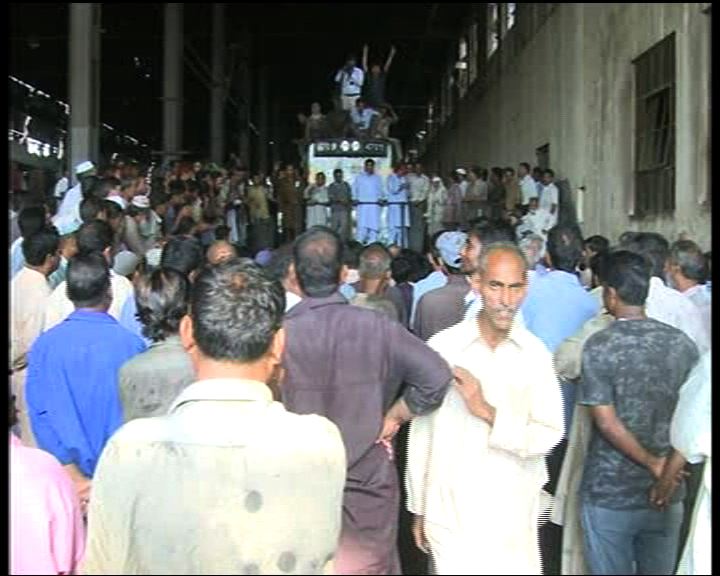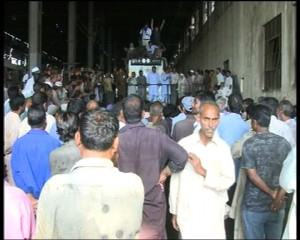The Nation, Oct. 27: Mahmood Khan, a retired railway employee had been standing in a long queue since Tuesday to get his pension for September outside the National Bank’s Mughalpura workshop branch.
On Wednesday morning while standing in the queue Muhammad Khan fell on the ground unconscious. People shifted him to nearby hospital where he was declared dead.
It is worth mentioning that hundreds of pensioners had to spend night outside the bank for the payment as PR failed to fulfill the promise made by its general manager Operations for payment of pension by October 25.
PR had assured all the employee unions that salaries and pensions would be paid by October 25 and the unions had called off the strike after the assurance.
General Manager (GM) PR Saeed Akhtar had also categorically stated that after receiving Rs 1 billion by the federal government, the railways had no problem with the provision of salaries and pensions and that every single one of the current and retired employee would be paid by the given date. The GM had also stated that the salaries and pensions of the next month would be paid before Eidul Azha.
All these claims proved wrong when hundreds of pensioners protested in front of the PR headquarters in Lahore and the regional offices all over the country, including Karachi, Rawalpindi, Peshawar and Quetta.
They chanted slogans against the pathetic and callous attitude of the PR authorities. Many of them said that they totally depended on pensions. The pensioners questioned that why the salaries of the PR bureaucracy were not delayed though they were higher than any worker or pensioner. They were of the view that PR admin had lied to the entire nation and the pensioners just to avoid the strike.
The PR spokesperson while explaining the reason for the delay in the disbursement of salary and pension said that the department had transferred Rs77.73 million to 78 bank branches all over the country to ensure payment.
He said the reason behind non-payment could be the unexpected bank holiday on Monday which might have delayed the transfer of funds through the banking system. He was hopeful that the matter would be resolved by Wednesday once the funds were transacted.
Source: Nation.com.pk


